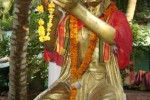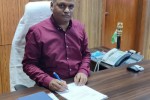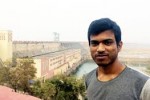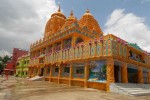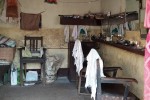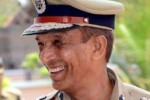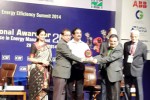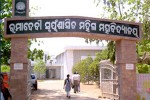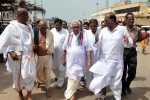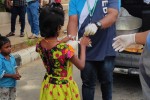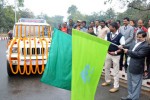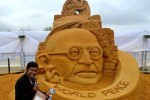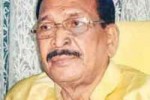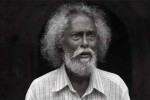*V.Srinivas 9th May 1956: Rajya Sabha had concluded the marathon 4 day debate on the AIIMS Bill 1956.Rajkumari Amrit Kaur in her reply to the debate spoke thus – “I want this Institute to be a unique Institute, and to be able to give our people – the young men and women doctors – the opportunities for study for post graduate education that they have not uptil now been able to have in their country.I want this to be something wonderful, of which India can be proud, and I want India to be proud of it.” The Deputy Chairman Rajya Sabha posed the Question “that the Bill be passed”.The motion was adopted, and thus AIIMS was born fifty years ago.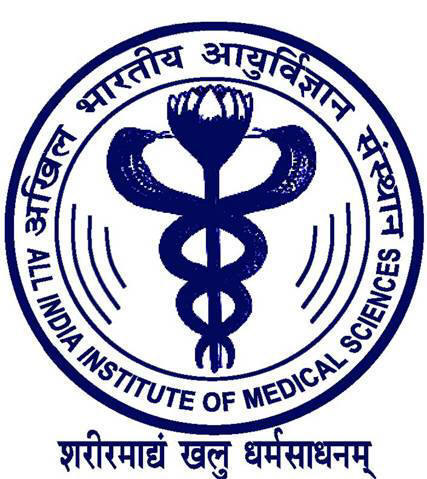 IntroductionThe AIIMS Act 1956 provided for the establishment of the All India Institute of Medical Sciences.It was enacted by Parliament as Act no 25 of 1956 and has a mere 29 Sections.The Business Advisory Committee of Lok Sabha had allocated only 60 minutes for discussion and passage of the Legislation.The Bill aroused tremendous enthusiasm amongst Members of Parliament and was debated for 3 days from 18th to 21st February 1956 in the Lok Sabha and 4 days from 3rd May to 9th May 1956 in the Rajya Sabha.The Parliamentary records of the debate run into over 800 pages.Moving the Bill in Lok Sabha18th February 1956: When the Minister of Health Rajkumari Amrit Kaur rose in the Lok Sabha to move the Bill, she did not have a prepared text of her speech.She spoke from the notes that she carried and from her heart.“It has been one of my cherished dreams that for post graduate study and for the maintenance of high standards of medical education in our country, we should have an institute of this nature which would enable our young men and women to have their post graduate education in their own country.It will provide under graduate study to only a very limited few.The major emphasis will be on post graduate study and specialization.” The two special features of the Institute, which is the first of its kind in India and the first of its kind in Asia, are prohibition of private practice of every form and to pay the doctors reasonably high salaries to compensate them for the loss of private practice.The doctors of AIIMS would devote their whole time not only to teaching, not only to serving the patients who come to the hospital but also to research.All the staff and students were to be housed in the campus of the Institute in the best traditions of the Guru-Sishya ideal to stay in close touch with each other.The DebateThe Members of Parliament across party lines in the Lok Sabha overwhelmingly supported the revolutionary changes in medical education envisaged by the AIIMS Bill 1956.Commencing the debate Dr.Rama Rao Member of Parliament from Kakinada, said the Institute should have more under-graduate seats, given that very limited opportunities were available in India.T.S.A.Chettiar Member of Parliament from Tiruppur said that the composition of the Institute should provide that the majority of the members should be non-officials.In addition to accounts being submitted to Parliament, the Institute should lay an annual report of its activities in both the Houses of Parliament.This proposal of T.S.A.Chettiar was incorporated in the AIIMS Act by a subsequent amendment.He further said that practical training for doctors in rural and urban areas cannot be provided on the campus of the Institute and the Institute should have a hospital where practical training can be provided.This is reflected in the Community Health Centre at Ballabhgarh, (in the vicinity of Delhi) which is administered by the Institute where undergraduate doctors are sent for practical training.Shrimati Jayashri MP from Bombay Suburban said that the nursing college of AIIMS should be a path bearer for the other nursing colleges of the Nation.Shri Narayan Das MP from Darbhanga said that the Government must provide adequate finances to the Institute.Mohanlal Saksena who represented Lucknow in the House, said that the AIIMS was going to be an autonomous body and Parliament will not have much control over it.Several members also raised the need to incorporate Ayurveda, Homeopathy and other indigenous systems of medicine into the AIIMS which was a recurring theme in the Rajya Sabha debate also.Even as the Bill was put to clause by clause voting, Joachim Alva Member of Parliament from Kanara expressed concern that the Director who is to be appointed by the Government could perhaps be a retired politician – “a Khushamadi” who may not have done any teaching or operative work or anything of that sort for nearly two decades.In her reply to the debate in Lok Sabha, the Health Minister, said that the Governing body would comprise of a majority of non-officials.She maintained that the name All India Institute of Medical Sciences was all inclusive and apt. She assured the members that the selection of Professors by a Standing Selection Committee has been agreed to by UPSC.She further clarified that while Rules will be made by Government, Regulations dealing with a wide variety of subjects pertaining to administration will be formulated by the Institute.The AIIMS Bill was thus passed by Lok Sabha with a single amendment that AIIMS shall lay an annual report through Central Government in both Houses of Parliament.The Bill’s Journey in Rajya Sabha3rd May 1956: Introducing the Bill in the Rajya Sabha, the Union Health Minister Rajkumari Amrit Kaur said “The future of the Institute will lie in the hands of the Director, of the Professors and other Members of the teaching staff and students.I believe that it will be their devotion to duty, their desire to promote their work and their spirit of altruism that will actuate them to subordinate their personal considerations as I believe the noble profession of medicine should do to the fulfillment of the objectives in view, that will eventually create and maintain an atmosphere which is necessary for an Institute like this.I do therefore, hope that in presenting the Bill for acceptance by the Rajya Sabha today, the legal structure that is crafted may facilitate the progressive realization of improved methods of medical education in this Institute and through its influence the standards of different courses of professional training in the field of health throughout this country will be raised.” She informed Members that Dr.B.B.Dixit has been appointed as the first Director of the Institute given his research experience at the Haffkine Institute and the administrative experience as Surgeon-General of Bombay.Concluding her introductory remarks, the Health Minister maintained that “Subject to such minimum control as the Government of India may exercise through its rule making power, the Institute will enjoy a very large measure of autonomy to fulfill its objectives.” The Debate in the Rajya SabhaThough the Members of the Rajya Sabha were overwhelmingly in support of the Bill, for establishing an All India Institute of Medical Sciences facilitating for higher instruction in modern medicine, yet many felt that the legislation lacked clarity and envisaged excessive delegation to executive authority in the Rules.Members said that out of 30 clauses in the Bill as many as 25 clauses contained the provision, “prescribed by Rules” and 11 clauses contained the provision “prescribed by regulations”.While delegated legislation comes with every Act, the AIIMS Bill sought extraordinary delegation to executive authority.The powers of the Medical Council to grant degrees and diplomas and the powers of the UPSC to conduct selections were delegated to the Institute.Several members expressed concern at the total omission of references to indigenous systems of medicine in the Bill and felt that the focus should also be on Ayurveda, Homeopathy and Unani systems of medicine.Biswanath Das Member of Parliament from Orissa said that the Health Minister who received inspiration from Mahatma Gandhi was making Ayurveda an untouchable system.Some Members also felt that the Dental College and Nursing College were not required at AIIMS and the focus should be on high-end research work.Commencing the debate P.N.Sapru Member of Parliament from Uttar Pradesh said that “We cannot agree to the suggestion that the shaping of the Institute in its technical aspect should be entrusted to the Director and the Professors of the Institute acting as a medical faculty.There is danger, under a constitution of this character, of the academic faculty of the Institute developing into a closed corporation of mutual admiration.There must be representation of an expert character – representation of an outside expert character – provided in the constitution itself.” Participating in the debate, Dr Radha Kumud Mookerji, nominated Member of Parliament, sought clarifications on Clause 5 of the Bill which says that “AIIMS will be an Institute of National Importance”.He felt that the scope of National importance must be wide enough to cover all systems of medicine prevailing in the country – systems of medicine which have survived the onslaught of the ages.Similar views were expressed by H.P.Saksena Member of Parliament from Uttar Pradesh on clause 5.He said that the Institute of National Importance should demonstrate a high standard of medical education to all other medical colleges and other allied institutions in India.Dr.W.S.Barlingay an MP from Madhya Pradesh laid emphasis on the Objects of the Institute to develop patterns of teaching in medical education as a critical component of the Institute’s focus areas.He felt that the Institute could be attached to Delhi University which could grant diplomas and degrees as also get grants from University Grants Commission.Passing of the historic MotionIn her reply to the debate, Rajkumari Amrit Kaur provided answers to the concerns expressed by Members.She argued that the Institute shall have the power to grant medical degrees, diplomas and other academic distinctions and titles under the Act of 1956.She maintained that Dentistry was has been a very neglected science in India and dentists have to go abroad to get first class qualifications.Hence a Dental College was attached to the Institute.Similarly she said, Nursing was the most neglected limb of the medical profession though it was an important hub.She said she had consulted UPSC on the recruitment to faculty posts.UPSC was of the view that because AIIMS will be a statutory non-government institution, recruitment will be outside the purview of UPSC.With regard to excessive delegated legislation being taken by Executive, she said that Parliament should give as much autonomy as it can to this Institute, which is going to be a pioneer venture.“Let us have elasticity and let us have autonomy…after all you are going to have an extremely good Governing Body which will lay down the policies which will be followed by the Institute and the regulations must be left to the discretion of the Institute itself…the Government will be in very close touch with the Governing Body.Trust your Government, Trust your Scientific People…”.She promised to develop an All India Institute for Ayurveda at Jamnagar and al All India Institute for Homeopathy in future as also a chair for History of Medicine.The Bill was put to vote on the 4th day of the debate on 9th May 1956.Clearly, the Health Minister was exhausted by the 4th day of the debate.Even as the Bill was about to be passed Members continued to press for amendments in the clauses and it appears from a reading of the debate that the Health Minister showed some irritation in the House.Dr.Seeta Parmanand Member of Parliament from Madhya Pradesh said that “Sir, after all it is the right of this House, if at all they feel that something should be done by the Ministry, to criticize the Ministry.She called herself the Chief Servant of her Ministry.She is there to reply.” Despite these moments of acrimony, the Bill received support from all the Members of the House and the motion to pass the Bill was adopted leading to the establishment of AIIMS,**** *Author is a senior civil servant, an IAS officer of 1989 batch, presently serving as Deputy Director Administration, AIIMS New Delhi.The views expressed are personal and based on the research work done in the Debates Section of the Parliament Library, New Delhi.
IntroductionThe AIIMS Act 1956 provided for the establishment of the All India Institute of Medical Sciences.It was enacted by Parliament as Act no 25 of 1956 and has a mere 29 Sections.The Business Advisory Committee of Lok Sabha had allocated only 60 minutes for discussion and passage of the Legislation.The Bill aroused tremendous enthusiasm amongst Members of Parliament and was debated for 3 days from 18th to 21st February 1956 in the Lok Sabha and 4 days from 3rd May to 9th May 1956 in the Rajya Sabha.The Parliamentary records of the debate run into over 800 pages.Moving the Bill in Lok Sabha18th February 1956: When the Minister of Health Rajkumari Amrit Kaur rose in the Lok Sabha to move the Bill, she did not have a prepared text of her speech.She spoke from the notes that she carried and from her heart.“It has been one of my cherished dreams that for post graduate study and for the maintenance of high standards of medical education in our country, we should have an institute of this nature which would enable our young men and women to have their post graduate education in their own country.It will provide under graduate study to only a very limited few.The major emphasis will be on post graduate study and specialization.” The two special features of the Institute, which is the first of its kind in India and the first of its kind in Asia, are prohibition of private practice of every form and to pay the doctors reasonably high salaries to compensate them for the loss of private practice.The doctors of AIIMS would devote their whole time not only to teaching, not only to serving the patients who come to the hospital but also to research.All the staff and students were to be housed in the campus of the Institute in the best traditions of the Guru-Sishya ideal to stay in close touch with each other.The DebateThe Members of Parliament across party lines in the Lok Sabha overwhelmingly supported the revolutionary changes in medical education envisaged by the AIIMS Bill 1956.Commencing the debate Dr.Rama Rao Member of Parliament from Kakinada, said the Institute should have more under-graduate seats, given that very limited opportunities were available in India.T.S.A.Chettiar Member of Parliament from Tiruppur said that the composition of the Institute should provide that the majority of the members should be non-officials.In addition to accounts being submitted to Parliament, the Institute should lay an annual report of its activities in both the Houses of Parliament.This proposal of T.S.A.Chettiar was incorporated in the AIIMS Act by a subsequent amendment.He further said that practical training for doctors in rural and urban areas cannot be provided on the campus of the Institute and the Institute should have a hospital where practical training can be provided.This is reflected in the Community Health Centre at Ballabhgarh, (in the vicinity of Delhi) which is administered by the Institute where undergraduate doctors are sent for practical training.Shrimati Jayashri MP from Bombay Suburban said that the nursing college of AIIMS should be a path bearer for the other nursing colleges of the Nation.Shri Narayan Das MP from Darbhanga said that the Government must provide adequate finances to the Institute.Mohanlal Saksena who represented Lucknow in the House, said that the AIIMS was going to be an autonomous body and Parliament will not have much control over it.Several members also raised the need to incorporate Ayurveda, Homeopathy and other indigenous systems of medicine into the AIIMS which was a recurring theme in the Rajya Sabha debate also.Even as the Bill was put to clause by clause voting, Joachim Alva Member of Parliament from Kanara expressed concern that the Director who is to be appointed by the Government could perhaps be a retired politician – “a Khushamadi” who may not have done any teaching or operative work or anything of that sort for nearly two decades.In her reply to the debate in Lok Sabha, the Health Minister, said that the Governing body would comprise of a majority of non-officials.She maintained that the name All India Institute of Medical Sciences was all inclusive and apt. She assured the members that the selection of Professors by a Standing Selection Committee has been agreed to by UPSC.She further clarified that while Rules will be made by Government, Regulations dealing with a wide variety of subjects pertaining to administration will be formulated by the Institute.The AIIMS Bill was thus passed by Lok Sabha with a single amendment that AIIMS shall lay an annual report through Central Government in both Houses of Parliament.The Bill’s Journey in Rajya Sabha3rd May 1956: Introducing the Bill in the Rajya Sabha, the Union Health Minister Rajkumari Amrit Kaur said “The future of the Institute will lie in the hands of the Director, of the Professors and other Members of the teaching staff and students.I believe that it will be their devotion to duty, their desire to promote their work and their spirit of altruism that will actuate them to subordinate their personal considerations as I believe the noble profession of medicine should do to the fulfillment of the objectives in view, that will eventually create and maintain an atmosphere which is necessary for an Institute like this.I do therefore, hope that in presenting the Bill for acceptance by the Rajya Sabha today, the legal structure that is crafted may facilitate the progressive realization of improved methods of medical education in this Institute and through its influence the standards of different courses of professional training in the field of health throughout this country will be raised.” She informed Members that Dr.B.B.Dixit has been appointed as the first Director of the Institute given his research experience at the Haffkine Institute and the administrative experience as Surgeon-General of Bombay.Concluding her introductory remarks, the Health Minister maintained that “Subject to such minimum control as the Government of India may exercise through its rule making power, the Institute will enjoy a very large measure of autonomy to fulfill its objectives.” The Debate in the Rajya SabhaThough the Members of the Rajya Sabha were overwhelmingly in support of the Bill, for establishing an All India Institute of Medical Sciences facilitating for higher instruction in modern medicine, yet many felt that the legislation lacked clarity and envisaged excessive delegation to executive authority in the Rules.Members said that out of 30 clauses in the Bill as many as 25 clauses contained the provision, “prescribed by Rules” and 11 clauses contained the provision “prescribed by regulations”.While delegated legislation comes with every Act, the AIIMS Bill sought extraordinary delegation to executive authority.The powers of the Medical Council to grant degrees and diplomas and the powers of the UPSC to conduct selections were delegated to the Institute.Several members expressed concern at the total omission of references to indigenous systems of medicine in the Bill and felt that the focus should also be on Ayurveda, Homeopathy and Unani systems of medicine.Biswanath Das Member of Parliament from Orissa said that the Health Minister who received inspiration from Mahatma Gandhi was making Ayurveda an untouchable system.Some Members also felt that the Dental College and Nursing College were not required at AIIMS and the focus should be on high-end research work.Commencing the debate P.N.Sapru Member of Parliament from Uttar Pradesh said that “We cannot agree to the suggestion that the shaping of the Institute in its technical aspect should be entrusted to the Director and the Professors of the Institute acting as a medical faculty.There is danger, under a constitution of this character, of the academic faculty of the Institute developing into a closed corporation of mutual admiration.There must be representation of an expert character – representation of an outside expert character – provided in the constitution itself.” Participating in the debate, Dr Radha Kumud Mookerji, nominated Member of Parliament, sought clarifications on Clause 5 of the Bill which says that “AIIMS will be an Institute of National Importance”.He felt that the scope of National importance must be wide enough to cover all systems of medicine prevailing in the country – systems of medicine which have survived the onslaught of the ages.Similar views were expressed by H.P.Saksena Member of Parliament from Uttar Pradesh on clause 5.He said that the Institute of National Importance should demonstrate a high standard of medical education to all other medical colleges and other allied institutions in India.Dr.W.S.Barlingay an MP from Madhya Pradesh laid emphasis on the Objects of the Institute to develop patterns of teaching in medical education as a critical component of the Institute’s focus areas.He felt that the Institute could be attached to Delhi University which could grant diplomas and degrees as also get grants from University Grants Commission.Passing of the historic MotionIn her reply to the debate, Rajkumari Amrit Kaur provided answers to the concerns expressed by Members.She argued that the Institute shall have the power to grant medical degrees, diplomas and other academic distinctions and titles under the Act of 1956.She maintained that Dentistry was has been a very neglected science in India and dentists have to go abroad to get first class qualifications.Hence a Dental College was attached to the Institute.Similarly she said, Nursing was the most neglected limb of the medical profession though it was an important hub.She said she had consulted UPSC on the recruitment to faculty posts.UPSC was of the view that because AIIMS will be a statutory non-government institution, recruitment will be outside the purview of UPSC.With regard to excessive delegated legislation being taken by Executive, she said that Parliament should give as much autonomy as it can to this Institute, which is going to be a pioneer venture.“Let us have elasticity and let us have autonomy…after all you are going to have an extremely good Governing Body which will lay down the policies which will be followed by the Institute and the regulations must be left to the discretion of the Institute itself…the Government will be in very close touch with the Governing Body.Trust your Government, Trust your Scientific People…”.She promised to develop an All India Institute for Ayurveda at Jamnagar and al All India Institute for Homeopathy in future as also a chair for History of Medicine.The Bill was put to vote on the 4th day of the debate on 9th May 1956.Clearly, the Health Minister was exhausted by the 4th day of the debate.Even as the Bill was about to be passed Members continued to press for amendments in the clauses and it appears from a reading of the debate that the Health Minister showed some irritation in the House.Dr.Seeta Parmanand Member of Parliament from Madhya Pradesh said that “Sir, after all it is the right of this House, if at all they feel that something should be done by the Ministry, to criticize the Ministry.She called herself the Chief Servant of her Ministry.She is there to reply.” Despite these moments of acrimony, the Bill received support from all the Members of the House and the motion to pass the Bill was adopted leading to the establishment of AIIMS,**** *Author is a senior civil servant, an IAS officer of 1989 batch, presently serving as Deputy Director Administration, AIIMS New Delhi.The views expressed are personal and based on the research work done in the Debates Section of the Parliament Library, New Delhi.
December 19, 2016
Breaking News:
- Saudi Arabian economic growth to accelerate in 2025 as oil taps open
October 23, 2024, 5:17 am - Hurricane Milton ravaged one of the most popular areas for 'snowbirds' on Florida's Gulf Coast
October 23, 2024, 4:06 am - People Who Went To See A Doctor "Just To Be Sure" And Ended Up Surviving Because Of It Are Sharing Their Stories
October 23, 2024, 2:35 am - Harris deploys Obama, Eminem as Trump shows fear amid record-breaking early voting
October 22, 2024, 11:43 pm - The Abrams tank built to fight the Soviets appears to be at war on Russian soil
October 22, 2024, 9:23 pm - Kristy strengthens into a hurricane in the eastern Pacific Ocean
October 22, 2024, 8:57 pm - Vance’s wife carries this 800-page book around with her on the campaign trail
October 22, 2024, 7:15 pm - Mexico announces food and agriculture plan that could take the country back to the 1980s
October 22, 2024, 7:00 pm - Key Atlantic current could collapse soon, 'impacting the entire world for centuries to come,' leading climate scientists warn
October 22, 2024, 6:49 pm - 20-year-old Gates woman killed in crash identified
October 22, 2024, 6:39 pm


